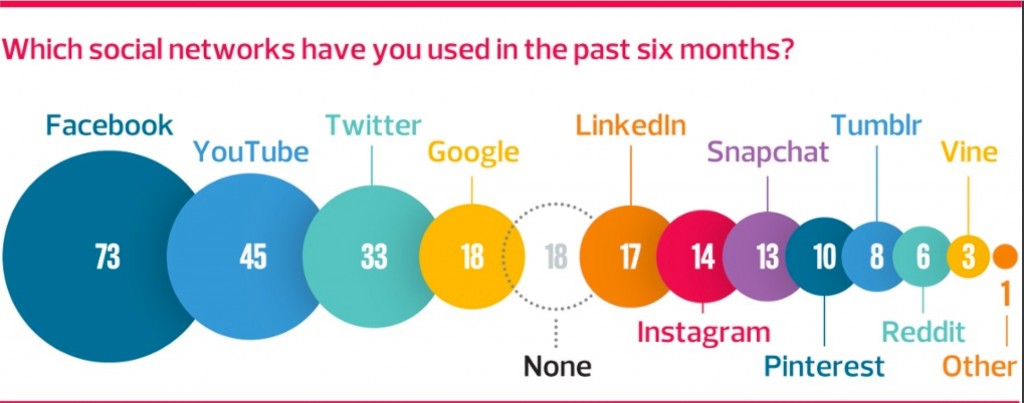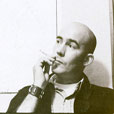Category Archives: Movies
Measuring movie performance
In one of those marvellous coincidences usually dreamed up only by screenwriters, immediately after hitting ‘publish’ on my previous post, an email from my colleague Allegre Hadida popped into my inbox, pointing me at this intriguing video about her recent research paper on the deficiencies of conventional metrics of movie performance. Her findings are intriguing, but so also is this way of drawing attention to one’s research. Other academics could learn a lot from this.
Nostalgia isn’t a business model
On a whim, we went to see The Artist last night, and enjoyed it a lot. It’s a nicely-made, cleverly-written, amusing movie about technological transition in a media industry — the switch from silent movies to “talkies”. It stars Jean Dujardin as George Valentin, a matinee idol of the silent era who cannot come to terms with the fact that the technology has moved on, and the stunningly beautiful Bérénice Bejo as a young actress who adapts easily to talkies and becomes as big a star as Valentin once was. There are three other memorable performances: George Goodman as Al Zimmer, the boss of Kinograph Studios — an archetypal Hollywood mogul; James Cromwell as Clifton, Valentin’s faithful chauffeur; and Valentin’s entrancing dog, played by a canine named Uggie. Personally, I would have given the dog an Oscar.
Two things struck me about the film. Firstly, it took me back to Tim Wu’s book, The Master Switch: The Rise and Fall of Information Empires (Borzoi Books), in which he surveys the history of the great US communications industries of the 20th century. Al Zimmer is clearly a version of Adolph Zukor, the mogul who created the modern studio system by industrialising movie production and vertically integrating the business so that he controlled everything from the actors’ contracts and production budgets down to the cinemas in which the products were screened. Wu’s contention is that the history of the telephone, movie, radio and TV industries displays a common feature: they all go through a cycle, in which they start out chaotic and gloriously creative (but anarchic), until eventually a charismatic entrepreneur arrives who brings order to the chaos by offering consumers a more dependable and technologically superior product, the popularity of which enables him to capture the industry. Zukor did that for the movie business, just as — in our time — Steve Jobs did it for the music business. And in The Artist Zimmer immediately grasps the significance of audio and goes for it like an ostrich at a brass doorknob (as PG Wodehouse would have said).
The story line of the film is centred on Valentin’s obstinate refusal to accept the reality created by the new technology. It’ll never catch on, he sneers. People don’t want to hear actors talking. And here I was immediately reminded of the way print journalists reacted to the Internet — and the way academics reacted to Wikipedia. The only difference is that Valentin is rescued from his own obdurate torpor at the last minute, and learns to turn a new trick, whereas some journalists and academics would sooner die than change their minds.
But then, that’s life.
Gonzo in retrospect
On Saturday we went to see Alex Gibney’s documentary Gonzo: The Life and Work of Dr. Hunter S. Thompson, which was simply wonderful. It’s a warts-and-all portrait which does not shy away from Thompson’s amazingly powerful instinct for self-destruction. I’m old enough to regard him as a contemporary, but Gibney’s film will give younger generations an insight into how remarkable a writer and personality Gonzo was. What I hadn’t fully appreciated at the time (partly, I suppose, because in those pre-Internet days, very few people on this side of the Atlantic had access to Rolling Stone magazine) was how moralistic (in the best sense) he was. I hadn’t realised, for example, how committed he was to George McGovern’s presidential campaign (as tragically flawed, in its way, as Al Gore’s in 2000). And how he was largely responsible for catapaulting Jimmy Carter from the obscurity of a Southern governorship to a successful presidential candidate.
The film is thus very informative. It is also outrageously funny, intriguing and moving without being sentimental. Johnny Depp reads from Thompson’s works (and is revealed as a friend and loyal admirer). And by using Thompson’s writing as voiceover, it reminds one of what a terrific writer he could be. At his best he was like Hemingway without the macho crap.
One of his great gifts was that he was a maestro of beginnings. Anyone who writes for a living will envy him that because the toughest thing is to find an arresting way of opening a piece. I know from my own experience, for example, that if I wake up on a Friday morning with a good first sentence for my newspaper column, then the job is half done. Thompson had a way of starting that took you by the scruff of the neck and dumped you, rubbing the sleep out of your psyche, into the middle of things.
LATER: Critics were less impressed by the film than I was. The great Philip French, for example, was relatively detached:
Gibney’s elaborately textured film draws on much home movie footage, new interviews, old TV appearances and clips from the feature films inspired by Thompson’s antics (he’s played by Bill Murray in Where the Buffalo Roam and Johnny Depp in Fear and Loathing in Las Vegas). It’s often hilarious and captures the spirit of the time, both in its early hopes and its inevitable disillusionment. Yet it’s a sad movie and somehow inadequate in its lack of true pity or understanding. Thompson’s first wife, Sondi, mother of his son Juan, put up with him for 20 years, until his excesses and egotism forced her to leave, and it is she alone who says: “I think his story was tragic.”
And it is she who demurs from a general agreement that his suicide, like that of Hemingway, was somehow a courageous act. In this documentary, we watch a man go insane and destroy himself, his final act of madness being the funeral he organised in which his ashes were sent into the skies with red, white and blue fireworks from a self-aggrandising tower he’d designed with the help of Steadman.
Peter Bradshaw was marginally more positive:
Young radicals become old reactionaries, of course, although unlike many gung-ho liberals, Thompson never lost his nerve and supported the military adventures of George W Bush. His uncool male-pattern baldness made him resemble Philip Larkin, and that cigarette-holder was a weirdly bohemian, almost Cowardian affectation, which passes unremarked by Gibney or anyone else. In the end, a lot of his work is like a massive improvised guitar solo. Maybe you had to be there. But he emerges from this film as a real American original.
And today one of my colleagues, an English don, gave me a hard time today for being hard on Hemingway. I have an awful feeling he may have been right. Sigh.
Our queer old dean*
We went to see Dean Spanley this evening and enjoyed it hugely. Implausible plot (about reincarnation) but a lovely, literary script, and great performances by Peter O’Toole (playing a curmudgeonly old bugger not unlike himself), Jeremy Northam as his son (in a truly magnificent hat) and Sam Neill as the Dean. Can’t improve on the IMDB reviewer, Jamie Robert Ward, who wrote:
For all its eccentricities, dry humour and rich sense of character however, it must be noted that the experience of watching Dean Spanley certainly isn’t for everyone. A drama rooted in classic prose, focusing heavily on character, philosophy and small nuances of psychology and life, Toa Fraser here sticks to his guns and delivers an unapologetically intelligent, cultured and insightful character study kept in check by warmth of heart and unique personality. If there is one major selling point for the feature that will allow all audiences to get something from the feature however, it simply lies within the timeless presence of Peter O’Toole who gives a wonderful performance befitting of his stature and the character in which he resides. It can be a touching, humorous and even thought-provoking experience, but like a fine wine, you’re best not to get too involved here; this one’s for sitting back and soaking in one sip at a time, and yes, it might be a little syrupy but it’s enough to get lost in and enjoy all the same.
The big surprise was learning that it was based on a book written by an eccentric Anglo-Irish peer, Edward Plunkett, 18th Baron Dunsany who was, among other things, a friend of Yeats and Lady Gregory and a great dog-lover. This last attribute explains much about the film.
*Footnote: A Spoonerism. The celebrated Warden of New College was proposing a toast to the Queen.


